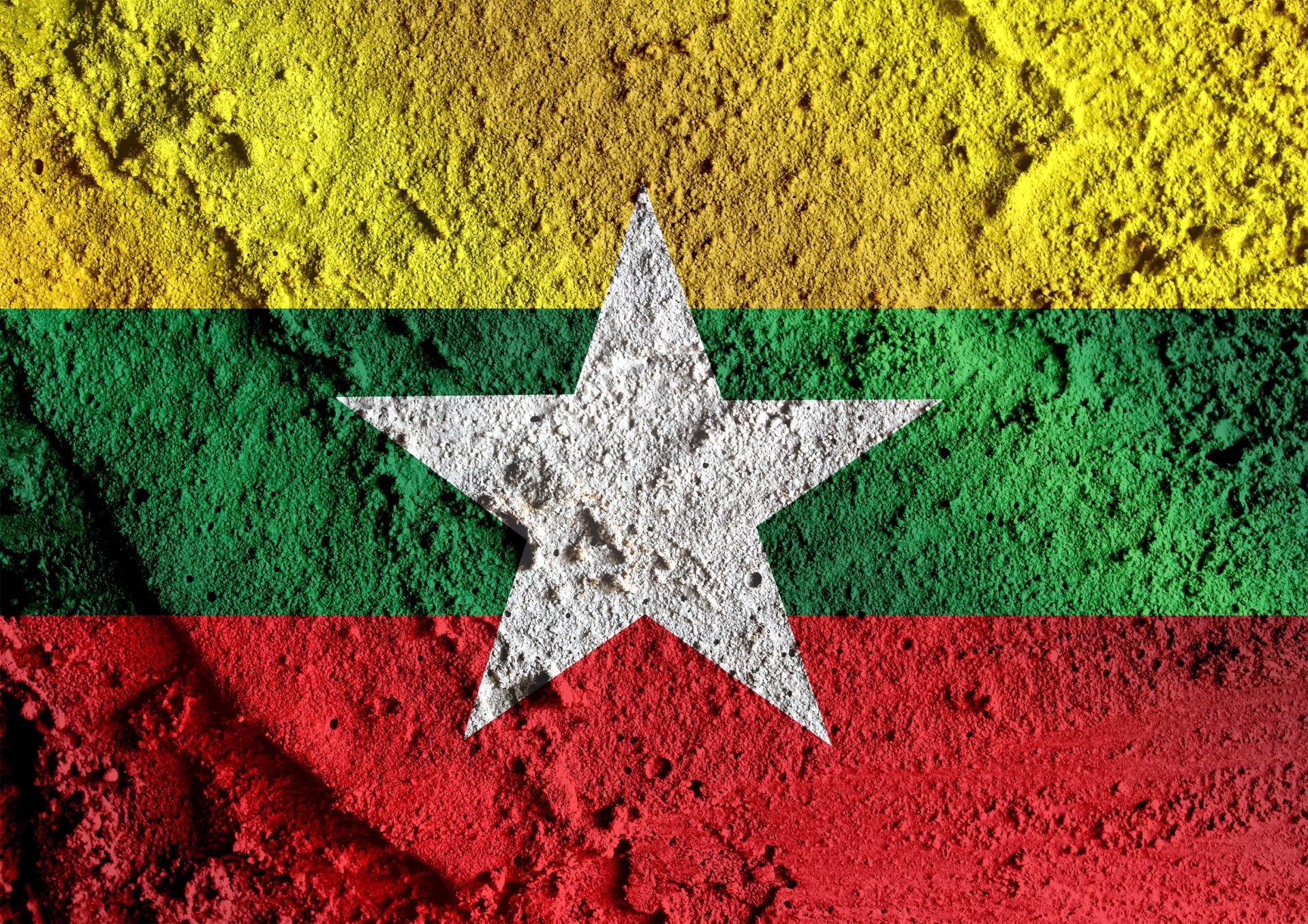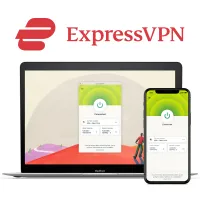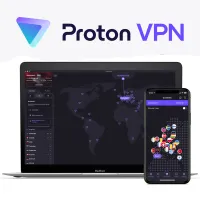The best VPN for Myanmar
Sidestep the restrictions and blocks in Myanmar with the best VPNs

A Virtual Private Network (VPN) is no-brainer if you want to keep yourself safe and private on the internet, whether you're gaming, streaming, or casually browsing. Using a VPN, for the most part, and in most countries, is legitimate, but Myanmar’s military has begun cracking down hard on this technology to maintain its strict censorship of the internet.
If you're caught using a VPN without obtaining express permission from the Ministry of Transport and Communications (MOTC) in Myanmar, you can face up to three years of imprisonment and/or a fine of up to US $2,500. Although this law has not yet been passed, there have been reports of officials checking civilian's devices for the presence of a VPN and confiscating them if a VPN is found.
However, this doesn’t mean that you can’t use a VPN in Myanmar. That said, for a VPN to be effective in Myanmar, the provider needs to have a server there. This is uncommon for even large-scale VPN providers, so your options may be limited. Luckily for you, my team of experts and I at Tom’s Guide have scoured the market to find VPNs that work in Myanmar.
The best VPN for Myanmar in 2026
A VPN is an essential part of your online security toolkit. It masks your real IP address and gives you a fake location, making it impossible for hackers, ISPs, and the government to track your internet traffic. The best VPN services aren't mere watchdogs of privacy – they can also double up as the ultimate bargain hunter’s tool, helping you save money on subscriptions, car rentals, flights, and more.
However, as discussed above, not all VPNs enjoy a free run in Myanmar, and certainly not those without a server in the country. This begs the question: are there rock-solid VPNs for Myanmar? Luckily, there are.
1. ExpressVPN: the best Myanmar VPN service in 2023
ExpressVPN is the best VPN in the industry, and unlike other big-name providers, it's equally potent for use in Myanmar as well. It has a server in that country, allowing you to experience all of its features, blazing speeds, reliable unblocking, and easy-to-use apps no matter where you are.
A 30-day money-back guarantee will allow you to try the service risk-free – and Tom's Guide readers can also enjoy three months of extra protection for free and a year's worth of cloud storage Backblaze by signing up for a 12-month plan.
2. Proton VPN: the most secure Myanmar VPN we've tested
With servers in Myanmar, Proton VPN is an ideal choice for those who want to circumvent content blocks there. It's also a privacy purist’s delight and one of the most secure VPNs I've ever tested, thanks to Swiss privacy laws, Secure Core servers, and open-source apps for every platform.
Everything else, including speeds, ease of use, and customer support, is top-notch as well. Be sure to make the most of its 30-day money-back guarantee and see how it compares to ExpressVPN.
How to pick a VPN
Here are the main factors to consider if you're in the market for a VPN for Myanmar:
Server locations: look for a VPN service with a vast network of servers nicely spread out around the world, as it will allow you to connect from and to anywhere.
If you want to access content blocked in your region, your VPN provider must have servers in your country. Without that, it won't be able to get past the restrictions placed on Myanmarese content.
Unblocking capabilities: servers in Myanmar don't guarantee that the provider will be able to access content there, not until it also boasts powerful unblocking capabilities capable of evading the geo-blocks on popular streaming services like Netflix, BBC iPlayer, Amazon Prime Video, and Disney Plus.
Security: a foolproof kill switch, a strict no-logs policy, and industry-standard AES-256 encryption are all must-haves in the service you select. Look for support for the latest and popular VPN protocols like WireGuard and OpenVPN.
Additionally, you may also prioritize VPNs that offer port forwarding or multi-hop – if those are features you cannot do without. Several providers, like Surfshark and NordVPN, offer bundled solutions that include extra tools like built-in antivirus, dark web monitoring, and more.
Customer support: a good VPN is one with prompt and robust support options. Is there 24/7 support via multiple channels, including email, phone, and live chat? Are there ample FAQs and how-to pages to guide you through both common and uncommon queries? If the answers to these questions are in the affirmative, the VPN provider you're looking at is worth considering.
Price: while online privacy and security are undoubtedly priceless, they don't have to break the bank for you. More than the price tag itself, consider the VPN’s value for money, as not all VPNs are equal in what they offer.
Look for a provider that offers all of the features you want and is in line with how much you're willing to shell out. However, if you're pinching for pennies, check out our list of the best cheap VPNs.
Compatibility is just as important. The VPN you select must offer easy-to-use apps for various devices, including Android, iOS, Windows, Mac, and Linux, especially the ones you plan to use it on.
Speed: if your intended use case is gaming or streaming where lags and buffering need to be kept to a minimum, opt for a VPN that offers class-leading speeds, like NordVPN and Surfshark, which are the fastest VPNs as per my recent rounds of testing.
How we test VPNs
Every six months, our in-house team of experts conducts thorough and rigorous testing of the top VPN providers as part of our VPN testing methodology. We begin by combing through the provider's website for any changes in its policies, and while we're at it, we also try to ascertain whether its policies are clearly laid out and transparent or if they're hiding something.
Next, we try to anonymously sign up for the service and install its apps for Windows, Mac, iOS, Android, and Linux. We test all of the settings and features available on every app to see if something breaks. If it does, we report the issue back to the provider so that they can fix it. Regardless of whether a fix is made, we pen our findings and the provider's response in our detailed VPN reviews.
In addition to forming an opinion about how easy or complex it is to use the app, we also pay close attention to its design and aesthetics.
Then comes the speed testing. Here, we throw multiple real-world scenarios (with different protocols and server locations) at every provider and test its speed at least five times on three different speed test sites across two sessions. We then take the median value of all of the tests and put that on our spec sheet.
Last but not least, we try to access geo-restricted content from Netflix and other big-name streaming services to zero in on the VPN’s unblocking capabilities. We do this every month so that our results are, at all times, accurate and reliable.
Using a VPN FAQs
Are VPNs safe?
All of the providers in our list of the best VPN services are extremely safe. However, not all VPNs are created equal, and there are hundreds of them that track your data and IP so that they can turn a profit by selling your information to whoever pays for it.
Only VPNs with a no-logs policy (even better if it has RAM-only servers that wipe off any data on every boot), industry-standard AES 256-bit encryption, foolproof security essentials like a kill switch, and support for all of the most secure encryption protocols, including OpenVPN, WireGuard, and IKEv2, can be considered trustworthy and worth your time and investment.
Is it legal to use a VPN?
Using a VPN is legal in most countries around the world. In Myanmar, though, things are a little different. The Ministry of Transport and Communications (MOTC) in Myanmar released the Draft Law 2.0 in January 2022, which prohibits you from using any VPN unless you've received express permission from the MOTC.
Should you try to bypass these rules, it can result in a minimum of one year and a maximum of three years imprisonment and/or a fine of up to MMK 5 million (approximately US$2,500). The silver lining, though, is that this law has not yet been passed; still, there have been reports of Myanmar officials stopping civilians and checking their devices to see if there’s a VPN on them. If a VPN is found, devices are reportedly being confiscated.
From a legal standpoint, even in countries where all VPNs are allowed to operate freely, you can be slapped with a fine or other punishment if you use the VPN to hide illegal activity like downloading copyrighted material or evading a streaming service’s Ts&Cs.
Then there are countries like Iraq, North Korea, and Turkmenistan that have completely banned VPNs. Turkey is slightly more lenient, only blocking access to the sites or servers of providers that don't follow its rules.
Are VPNs easy to use?
Short answer – yes.
However, there are several VPNs that come jam-packed with customization options and lots of tweakable settings. Needless to say, these are built for techies who know their way around VPNs.
If you're new to VPNs, though, it's important that you choose a provider that keeps things simple. My top recommendation for this is ExpressVPN. ExpressVPN, in particular, comes with an excellent one-click connect function, and its proprietary Lightway protocol is very intuitive in that it will automatically select the best server and encryption for your intended use case.
We test and review VPN services in the context of legal recreational uses. For example: 1. Accessing a service from another country (subject to the terms and conditions of that service). 2. Protecting your online security and strengthening your online privacy when abroad. We do not support or condone the illegal or malicious use of VPN services. Consuming pirated content that is paid-for is neither endorsed nor approved by Future Publishing.
Get instant access to breaking news, the hottest reviews, great deals and helpful tips.

Olivia joined Tom's Guide in October 2023 as part of the core Tech Software team, and is currently VPN Commissioning Editor. She regularly uses VPNs to make sure they deliver what they promise, and specializes in testing VPNs with streaming sites.
- Krishi ChowdharyContributor
 Club Benefits
Club Benefits







